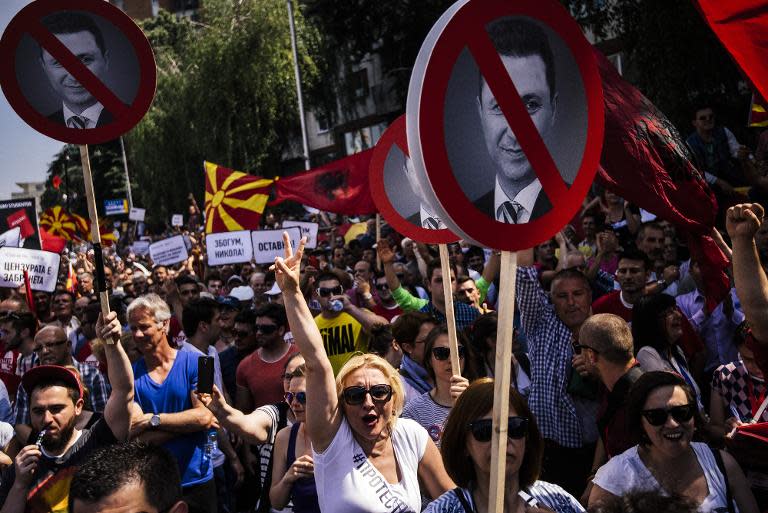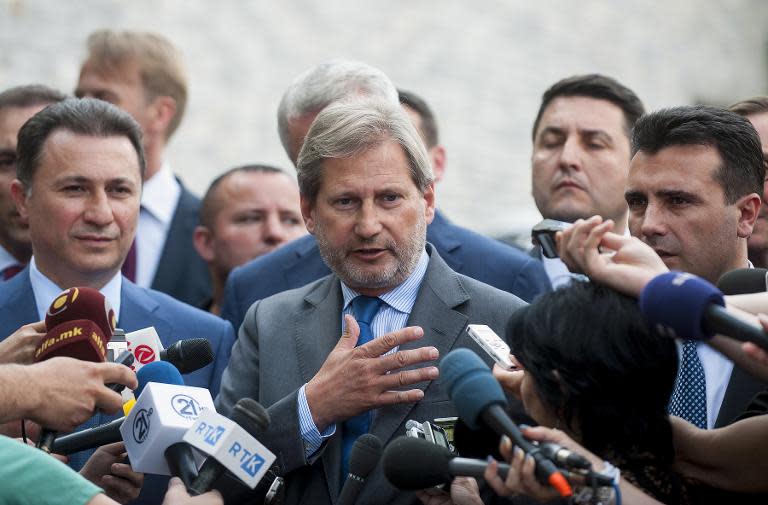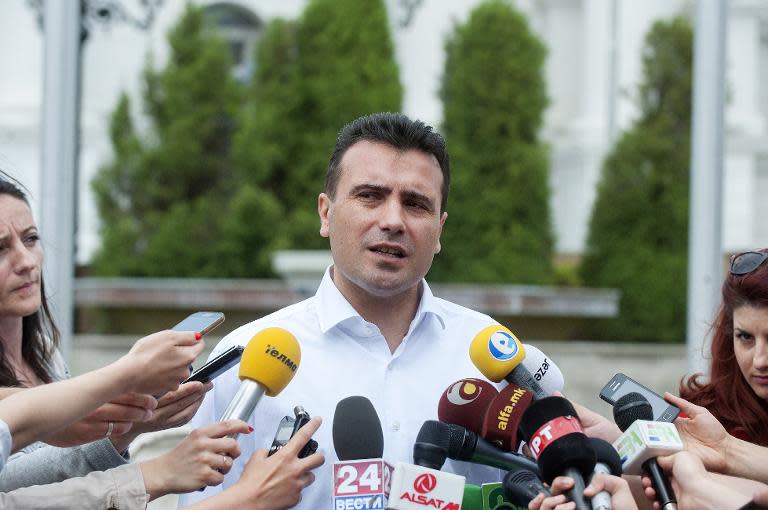Macedonia to hold polls in 2016 to end political crisis: EU
Macedonia's political leaders agreed Tuesday to hold elections in early 2016 in order to overcome a deep political crisis, EU enlargement commissioner Johannes Hahn said. "It was agreed that by the end of April next year there should be early elections," Hahn told reporters after a day-long meeting with key political actors in Macedonia, including Prime Minister Nikola Gruevski and main opposition leader Zoran Zaev. Details of the EU-brokered agreement are expected to be hammered out next week in Brussels, Hahn said. Macedonian politicians did not talk to reporters after the meeting also joined by US ambassador Jess Baily. Macedonia's last elections were held in April 2014, with the next one's normally due in April 2018. However the country is suffering a deep political crisis as the government and opposition exchange serious allegations. Claiming electoral fraud and refusing to recognise the results of the last year's polls, Zaev and his socialists (SDSM) have been boycotting the parliament. In addition, the centre-left opposition accuses Gruevski of wiretapping some 20,000 people, including politicians and journalists, as well as of corruption, a murder cover-up and other wrongdoings. The conservative government, in return, has filed charges against opposition leader Zaev accusing him of "spying" and attempts to "destabilise country". The crisis further deepened earlier this month when police clashed with an ethnic Albanian armed group, whose members were mostly from Kosovo, in the northern town of Kumanovo. Eighteen people were killed in the clashes, including eight police officers. - 'Keep European perspective alive' - Fearing a repeat of a six-month conflict in 2001 between Macedonian armed forces and ethnic Albanians demanding more rights for their community, the international community stepped in after the Kumanovo incident and initiated political talks among main political leaders. "It is important to overcome the current difficult situation, the current crisis in order to keep the European, Euro-Atlantic perspective alive," Hahn said. Macedonia has been in a decade-long stalemate in the process of accession to both the European Union and NATO due to a veto by Greece. Athens denies its neighbour the use of name Macedonia, claiming to have a historical right on it. An anti-government protest in mid-May gathered 20,000 people demanding Gruevski step down. Since then hundreds of opposition supporters have remained protesting in front of his office, refusing to leave until he resigns. But the 44-year old Gruevski -- who has transformed the capital Skopje with monumental new neo-classical buildings and a gigantic statue of Alexander the Great, that enraged Greece, during his nine years in power -- said he had no intention of resigning. However, following international pressure, two ministers, interior minister Gordana Jankulovska and the intelligence chief accused by the opposition of involvement in a wiretapping scandal, resigned earlier this month. Gruevski drew some 30,000 of his own supporters a day after the May 17 opposition rally, hundreds of whom have also been entrenched in front of the parliament building, only two kilometres (1.5 miles) away from the rival protest. Gruevski took over as prime minister in 2006 and has held the post ever since, sharing power with the country's main ethnic Albanian DUI party. The latter emerged from the 2001 ethnic Albanian armed rebellion. Ethnic Albanians make up around one quarter of Macedonia's 2.1 million people and relations between two ethnic groups remain strained.

 Yahoo Finance
Yahoo Finance 


